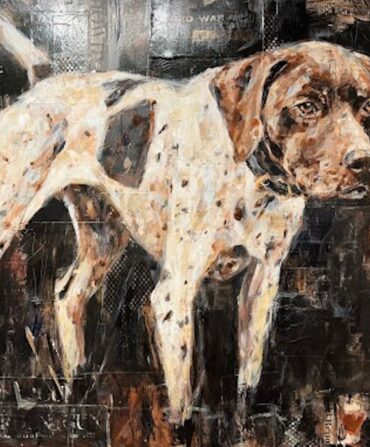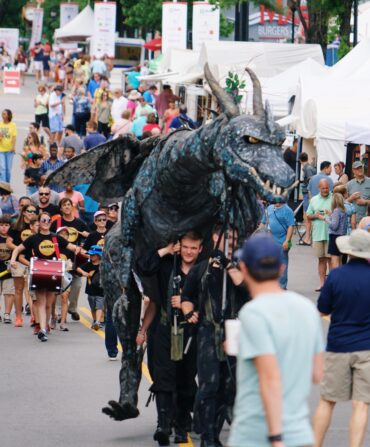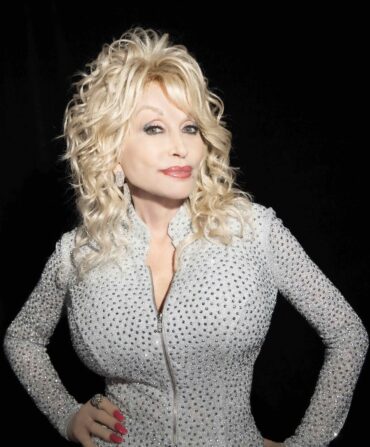Born on a cattle ranch in Florida, Clint Bentley was a senior at Stetson University when we met. I was interviewing for a job teaching fiction writing and, strange as the circumstances might have been, we hit it off immediately. Though he had graduated by the time I arrived to begin work, we kept in touch, trading pages and discussing the sort of gritty novels and movies that so clearly inform Bentley’s work.
After Stetson, he worked a series of jobs in and out of the film industry. Then, in 2016, with his longtime collaborator, Greg Kwedar, he co-wrote and produced Transpecos, a thriller set on the U.S.-Mexico border that calls to mind both Cormac McCarthy and John Huston. The film won the Audience Award at the 2016 SXSW Film Festival and established Bentley as a talent on the rise. Jockey marks his arrival not only as a screenwriter but as a director as well. Starring the excellent Clifton Collins Jr., it tells the story of a veteran rider facing what may be his last season, a story as gorgeous as it is heartbreaking. Bentley and I caught up from his home in Dallas, where he lives with his wife and young son.
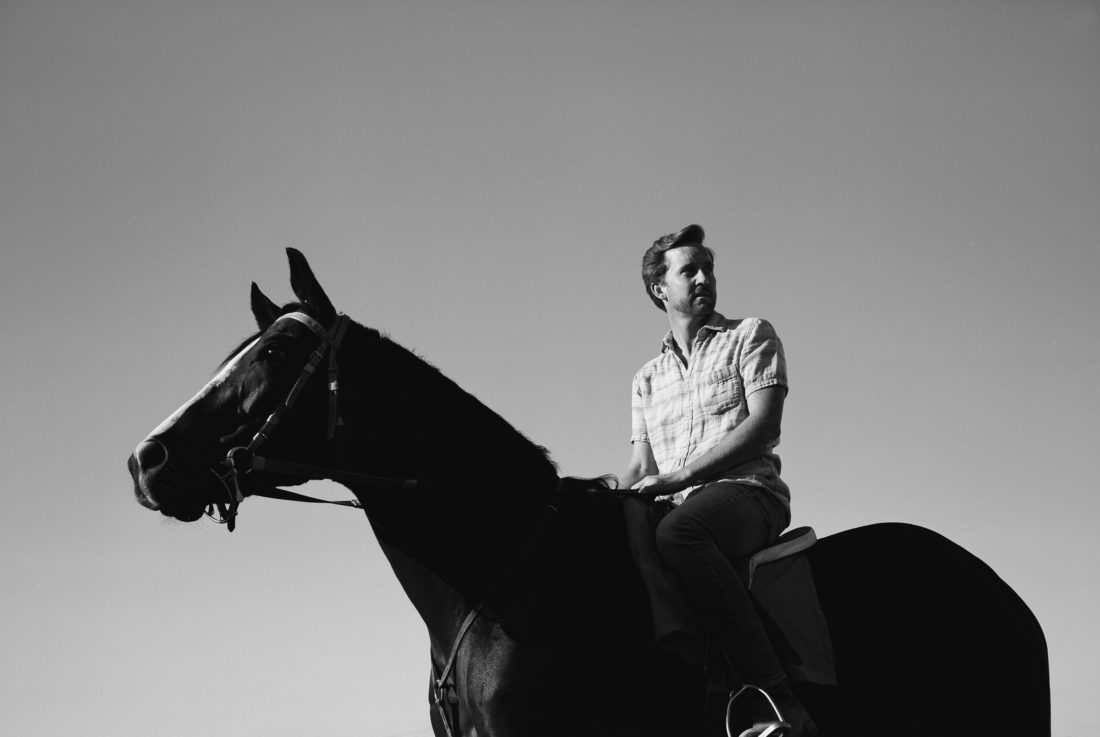
Did you ever expect this level of success?
Definitely not. But I’m very grateful for it. Luckily I had let go of any expectations of this kind of success before making Jockey, and I just made it for the love of making a movie. I honestly thought the tone and feeling of it might be too specific to connect with a wider audience, so I just made what I wanted to see. Which makes the response to it even more rewarding, I guess.
I think horse racing is something many of us probably think we know but really don’t.
Absolutely. The Kentucky Derby is the only interaction most people have with it, but that’s like watching the World Series and taking it to represent all of baseball. Even the horse racing movies in recent memory just dwell on that side of things. The upper echelon. But the majority of people in racing will never see the Kentucky Derby, even though they’ll spend their whole life racing horses. It was that working class side of the sport that I wanted to show people.
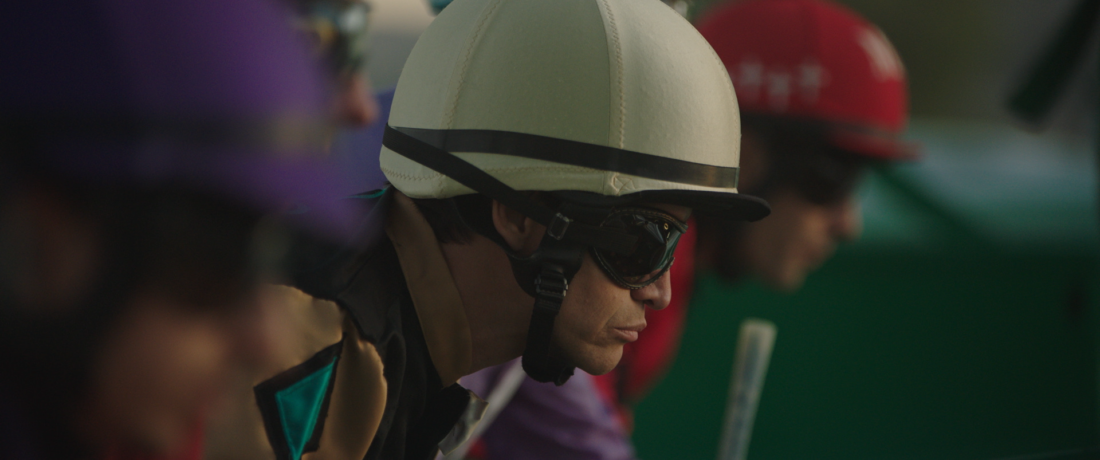
I see Jockey in a venerable tradition of great sports films like David Russell’s The Fighter or Darren Aronofsky’s The Wrestler. Like those, it’s about a very particular subculture that extracts a tremendous physical toll. Did you grow up knowing this world?
I did. My dad was a jockey and then later a trainer, and that was the initial instinct to make this movie. I remember being at a track out in Ruidoso, New Mexico, helping my dad clean stalls, and there was just a feeling to the place that I hadn’t seen in other horse racing movies. It was beautiful and melancholy and strange all at the same time. I thought, I just want to show people this world.
Clifton Collins Jr. won Sundance’s U.S. Dramatic Special Jury Award for Best Actor. It occurs to me that he’s someone we all know when we see him even if we don’t know his name.
Exactly. He’s been turning out incredible work for the last three decades, but it’s mostly been supporting work. He’s one of the greatest character actors alive. My writing/producing partner, Greg Kwedar, and I wanted to give him a role worthy of his talents. I’m so grateful to have been able to work with him on my first feature.
You have a young son. How has fatherhood changed your relationship to work?
Oh jeez, you know how it is. They teach you more than you teach them, right? The biggest thing is that I’ve become much more conscious of the time I spend working. I’m second-guessing myself a lot less, simply because I want to finish up work and hang out with him and watch him grow.
You’re also a fiction writer. Does film inform your writing, and vice-versa?
For sure. They really feed each other, and you’ve helped me develop so much on this path. Film helps me to think more visually when writing fiction. It helps me focus more on the images in a story, which I think engages the reader more in terms of finding meaning in the material. And writing fiction has helped me think more expansively about the stories I want to tell through film. I just wish I had more time for all of it.
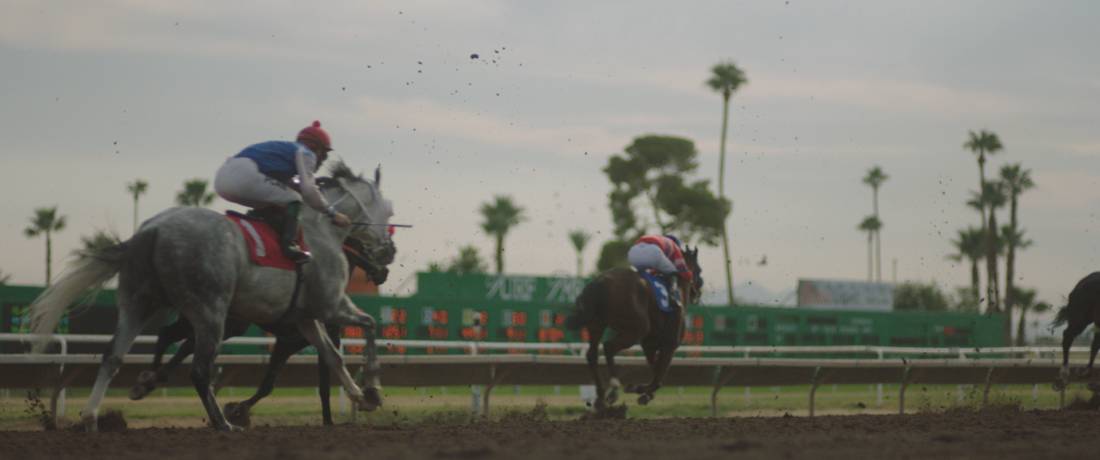
With Jockey, you’re telling the story of both a disappearing world and a harsh subculture. What attracts you to these sorts of stories?
I think it’s just that old saw of writing what you know. I grew up in these kinds of worlds with these kinds of people—working people who live in a harsh world and yet never lack for humor or love or optimism. It’s a life I hope to get to keep exploring onscreen and through stories.
You grew up in Florida and now live in Texas, not New York or L.A. What is it that keeps you in the South?
Part of it is that it’s home. It suits me. I’ve lived all over and yet somehow keep ending up back here. And part of it is I want to tell stories from here. It’s different down here than a lot of the clichés people are used to seeing, and I want to try and counterbalance those as much as possible.
Mark Powell is the author of seven novels, including Small Treasons and the forthcoming Lioness, and directs the creative writing program at Appalachian State University.



